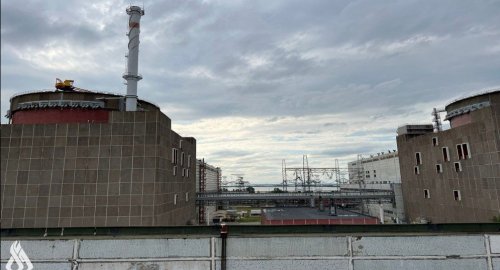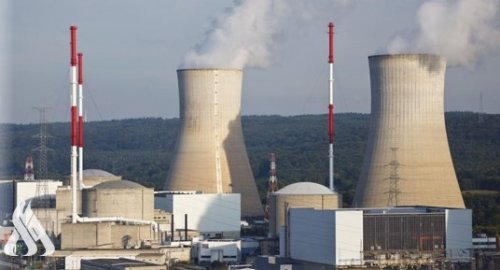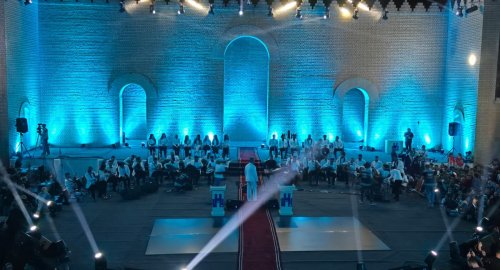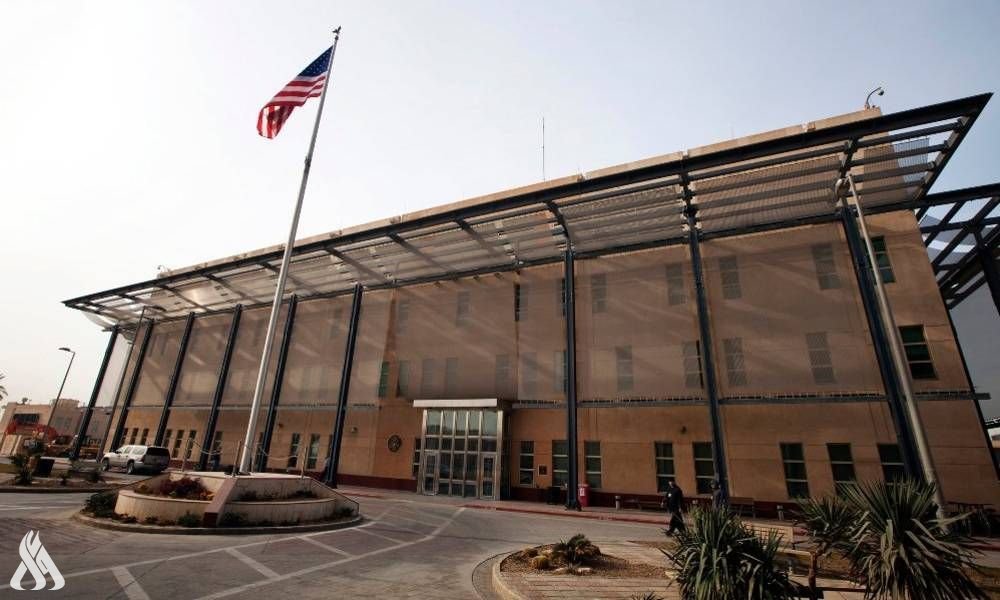
IAEA calls for ‘security’ zone at Ukraine nuclear power plant

- 7-09-2022, 09:38
INA- sources
The International Atomic Energy Agency (IAEA) has called for the establishment of a security zone around Ukraine’s Zaporizhzhia nuclear power plant, occupied by Russia and the site of recent shelling.
“The current situation is untenable,” the United Nations atomic watchdog said in a report on Tuesday after it sent a team to the plant last week.
The occupation of the nuclear power plant, Europe’s largest, has sparked fears of a nuclear disaster as both sides of the Russia-Ukraine war trade blame for shelling the site.
“There is an urgent need for interim measures to prevent a nuclear accident arising from physical damage caused by military means,” the IAEA said.
“This can be achieved by the immediate establishment of a nuclear safety and security protection zone,” it said in its report.
“The IAEA recommends that shelling on site and in its vicinity should be stopped immediately to avoid any further damages to the plant and associated facilities,” it said.
IAEA Director-General Rafael Grossi, who led the inspection visit, briefed the UN Security Council on the agency’s findings on Tuesday.
Before Grossi’s presentation, UN Secretary-General Antonio Guterres demanded that Russian and Ukrainian forces commit to halting all military activity around the plant and agree on a “demilitarised perimeter.”
Guterres said this would include “a commitment by Russian forces to withdraw all military personnel and equipment from that perimeter and a commitment by Ukrainian forces not to move into it.”
He warned that damage to the plant, whether intentional or not, “could spell catastrophe” in the region and beyond.
Russian troops seized control of the site in early March and there have been repeated attacks in the vicinity. Both Moscow and Kyiv have denied responsibility.
The IAEA said on Saturday that the plant had been disconnected from its last remaining main power line to the grid and was relying on a reserve line.
The long-awaited report did not ascribe blame for damage at the plant. Inspectors said they had found Russian troops and equipment at the plant, including military vehicles parked in turbine halls. They also said conditions for the plant’s Ukrainian staff should be improved to reduce the likelihood of errors.
“Ukrainian staff operating the plant under Russian military occupation are under constant high stress and pressure, especially with the limited staff available,” the IAEA report said. “This is not sustainable and could lead to increased human error with implications for nuclear safety.”
Najmedin Meskati, a professor of civil and environmental engineering at the University of Southern California and who has worked on nuclear safety for 35 years, told Al Jazeera the report’s findings on the mental health of the staff were “very scary”.
Reading out from the report and highlighting comments such as “unbelievable pressure” and “friction in decision making” when dealing with Russian troops, he said: “These are all, unfortunately, a recipe for disaster.”
Addressing the UN Security Council after Grossi’s presentation, Russian Ambassador Vasily Nebenzya said, “We regret that in your report … the source of the shelling is not directly named.”
Shelling continues
Shelling continued around the site on Tuesday, a day after it was again knocked off Ukraine’s electrical grid and put in the precarious position of relying on its own power to run its safety systems.Russian-installed officials accused Ukrainian forces of shelling Enerhodar, the city where the plant is situated, while the Ukrainians said Kremlin forces attacked the city of Nikopol, across the Dnieper River from the power station.
The Ukrainian mayor of Enerhodar, Dmytro Orlov, reported that a powerful blast struck the city of 53,000 at about midday. The explosion left Enerhodar cut off from its power and water supplies. It was not immediately clear what caused the blast.
“We do understand your position as an international regulator, but in the current situation, it’s very important to call things by their name,” he said.
Ukrainian energy minister Herman Halushchenko told Ukrainian television, “Any repairs are impossible at this point – there are ongoing hostilities around the plant.”
In the meantime, the plant’s only remaining operational reactor will “generate the power the plant needs for its safety and other functions”, the IAEA said. The plant normally relies on outside power to run the critical cooling systems for its reactors and spent fuel and avoid a meltdown.
Experts say the reactors at Zaporizhzhia are designed to withstand natural disasters and even plane crashes, but the unpredictable fighting has repeatedly threatened to disrupt the cooling systems.
source: ALJAZEERA
White House: Talks with Iran were very positive and constructive
- International
- 09:40
US Embassy: Trade Mission of 60 Companies Visits Iraq
- politics
- 25/04/07
CBI unveils comprehensive reform plan to modernize banking sector
- Economy
- 25/04/07
Al-Sudani Meets Delegation from J.P. Morgan Bank
- politics
- 25/04/08












